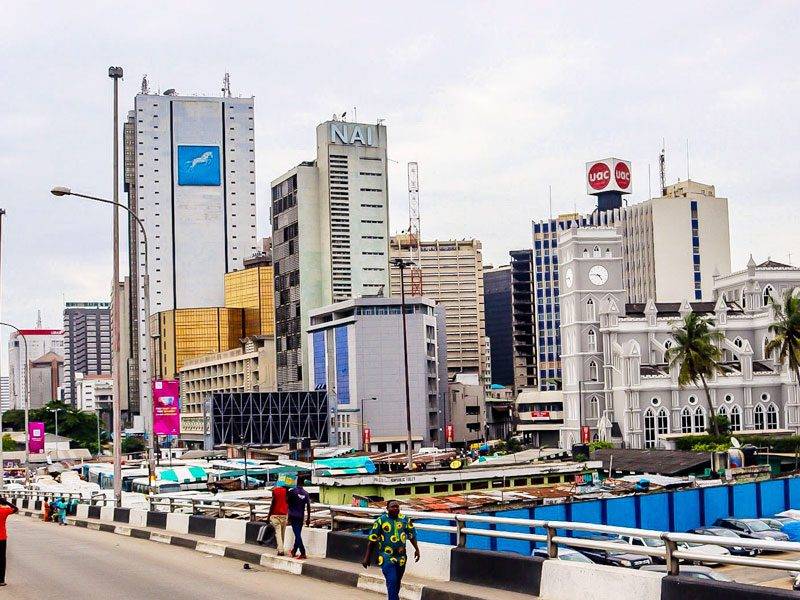Nigerian Banks Have Been Ordered To “Lend Or Die” – Now The Big Banks Are Thirsty For Borrowers

A couple of months ago, the Central Bank of Nigeria (CBN) basically told commercial banks in Nigeria to “lend or die.”
Quite simply, the country’s apex bank had become fed up with banks hoarding all the cash and profiting off of it, when some of those funds could go into actually growing the local economy.
So, the CBN issued a directive in where it ordered Nigerian banks to get their act together, and the directive came with a deadline too.
Per the new directive, banks will now have to maintain a loan-to-deposit ratio (LDR) of at least 60 percent or face stiff penalties.
In plain language, the CBN wants Nigerian banks to adjust their books before September 30, and the adjustment should reflect that the banks are now giving out nearly as much cash as they are keeping in.
The CBN directive could be seen as a way of compelling banks to give out loans to local industries and businesses that are in need of them. This, it hopes, will boost local productivity and foster economic growth at the national level.
Well, the economic growth is yet to manifest but one thing that is certain is that the CBN’s September 30 deadline really did send banks in some kind of race against one another to lend the most.
How Bank Lending Has Surged In Nigeria
As the deadline approaches, reports show that the total bank loans to customers of the thirteen (13) Nigerian banks listed on the Nigerian Stock Exchange (NSE) stood at NGN 15.9 Tn as of June 2019.
Meanwhile, the reports further show that the total loans and advances rose to NGN 17.7 Tn as of June 2019, from NGN 16.15 Tn in December 2018. This suggests the 13 listed banks increased total loans and advances by NGN 1.5 Tn between January and June 2019.
Digging deeper into the financials of the listed banks reveals that while total loans and advances reached NGN 17.7 Tn this year, banks’ deposits as of June 2019 stood at NGN 28.3 Tn. This means that, collectively, the 13 listed banks currently have a 62 percent loan-to-deposit ratio.
Which Banks Are Lending The Most?
Although Ecobank Transactional Inc (ETI) appears to be topping the charts with the largest amount of loans, lending data for its Nigerian subsidiary, Ecobank Nigeria, is not available, which makes it hard to determine if the bank is really doing the most.
In any case, the FUGAZ team (First Bank, UBA, GTBank, Access Bank, and Zenith Bank), all appear to be adjusting to the new CBN directive quite nicely.
The updated data shows that Access Bank is currently leading the pack with a loan portfolio of NGN 2.65 Tn, followed by Zenith Bank with NGN 1.80 Tn. First Bank is on NGN 1.74 Tn, while UBA and GTBank have disbursed NGN 1.68 Tn and NGN 1.27 Tn in loans respectively.
Which Banks Have Met The CBN’s New LDR Policy?
Only 7 banks have currently met the CBN new LDR policy as deadline day looms. Fidelity Bank currently has 91.1 percent LDR with NGN 999.3 Bn of NGN 1.97 Tn customers’ deposit.
Sterling Bank, First Bank, FCMB, Access Bank, Stanbic IBTC, Ecobank, and Wema have all met the CBN’s new LDR.
Meanwhile, Union Bank, GTBank, UBA, Zenith Bank, and Unity Bank all fall short at this point as their financials still reflect a huge chasm between deposits and loans. These banks still have a lot of work to do on that front.
What Happens If The Banks Fall Short Ultimately?
In an earlier circular, the CBN warned that failure to meet the minimum LDR would result in a fine.
This fine will take the form of an additional cash reserve requirement equivalent to 50 percent of the lending shortfall of the target LDR. The move, according to CBN, is to improve lending to the real sector of the Nigerian economy.
While many have lauded the CBN for the new policy, others have expressed concerns that the current position of the country’s apex bank could destabilize the banking industry, as frenzied borrowing could ultimately result in the underwriting of high-risk loans and weakening of assets.
In any case, it is quite certain that banks that are on the wrong side of the new LDR will be stepping up efforts to measure up by landing more borrowers in the few weeks before the September 30 deadline.